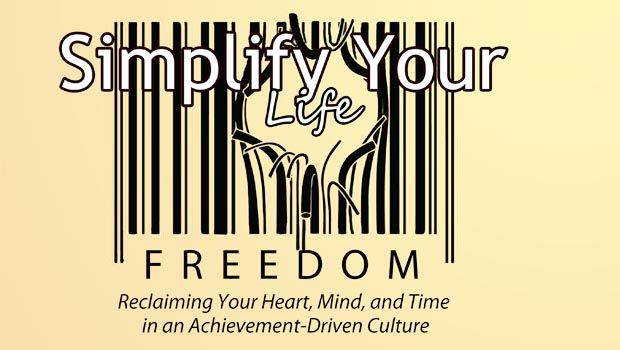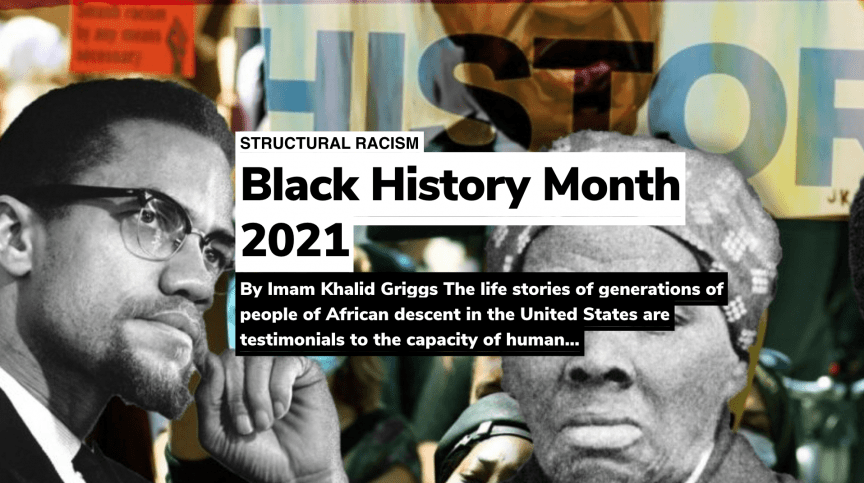The Sultans (a fictional family based on a composite of real-life cases) were the family everyone envied. They owned an elegant house in the most chic neighborhood in town. Their kids went to the best schools, got the highest grades, took part in many extra-curricular activities, and were well on their way to the best universities in the world. Mr. Sultan drove a shiny black BMW to work every day and Mrs. Sultan drove the family’s SUV to her work, picking up the kids from school on her way home and dropping them at their after-school activities. She would then head home to clean the house and cook the dinner. It was a picture-perfect family.
Until you looked closer.
Mrs. Sultan struggled daily to manage her time and take care of the chores that piled up day after day. Exhausted from the pressures at work, she would often drive back wondering why she was putting herself through all of this. Did she really enjoy her job or was she doing it only for the sake of the paycheck, or worse, only for the sake of the prestige it provided her? This is how she had imagined her life – a successful marriage, a good job, kids who excelled, a beautiful house, luxury cars, and regular exotic vacations. But still the doubts whirled in her head each day.
We are told to buy now and pay later, entrapping us in a constant cycle of debt, stress, and never-ending desire
Her husband would come home late, tired after a long day of work. Sometimes the kids would be asleep when he got back. Long hours and never-ending work were necessary to pay the bills – the mortgage, the utilities, the shopping, the kids’ many extra-curricular activities, and the vacations. The couple would have a brief, tired conversation, attend to the chores, and retire to bed only to wake up to another similar day. They would often wish for more time – more quality time to spend with the kids and with each other, more time for prayers and reading and reflecting on the Quran. If only they weren’t so busy and so tired. But they chugged along with the same routine each day, because this was the life they had dreamed of — wasn’t it? Or maybe it was just the life they had been taught to want.
Sadly, the average middle-class American family has a similar story. The pursuit of the “American Dream” and the desire to “keep up with the Joneses” has consumed our lives. We want the best of everything and we are made to believe that all the material possessions we hoard will somehow bring us happiness and fulfillment. This dream life seems, though, to be like a mirage. You run and run, tiring yourself in the process, but you are never able to get to that goal of ultimate satisfaction or happiness. There is always something more to achieve. More money, more goods, more fame, more power. And all this time you battle with a void inside you – is this really what you wanted? Is this bringing you happiness? Are you missing out on genuine fulfillment in the mad race to acquire more?
Allah (swt) talks about this attitude in the Quran: “The mutual rivalry for piling up [the good things of this world] diverts you [from the more serious things] until you visit the graves” (102:1-2). In fact, the culture of consumerism today envelops us, spurring us on with the desire to acquire more and more. We no longer aim to get what is enough. Instead, we keep asking how much more is possible. And the routines we have instituted to achieve this dream absorb us so much that we don’t even get time to slow down and think about what we are doing and why.
In an article on consumerism, the popular blogger Abu Productive points to how the Muslim ummah got lost in a culture of consumerism more than 1000 years ago, eventually leading to its downfall. When the expanding empires brought riches to the Muslim world during the Golden age of the Islamic civilization, consumerism, corruption, and complacency set in and the Muslims began to forget their purpose. The Prophet (saw) has warned us about this: “By Allah, it is not the poverty about which I fear in regard to you but I am afraid in your case that [the worldly] riches may be given to you as were given to those who went before you, and you begin to vie with one another for them as they vied for them. And these may destroy you as these destroyed them” (Sahih Muslim).
Sometimes we get so absorbed in the mad race to achieve more and more that we forget to enjoy what we already have. What use are all the “things” if we don’t even have a moment to relax, spend time with family, reflect on deeper issues, or contribute to the greater good? What use is all the convenience and comfort of luxury if we are constantly stressed? The credit culture part of this American dream helps weave this web of ambition, excess, and frenzy. We are bombarded with ads every day telling us that buying this purse or that pair of shoes will make us happier. We are told to buy now and pay later, entrapping us in a constant cycle of debt, stress, and never-ending desire.
The only way to break free from this culture is to see it for what it is and realize how it pervasively affects us. Once we recognize that we do not really need everything we think we need, life can be perfectly comfortable and satisfactory without big houses, flashy cars, and elaborate vacations. Liberated from these self-imposed expenses with all their stresses and complexities, life can be much more peaceful and rewarding. The key is simplicity. Following are a few ways to simplify your life and survive in today’s achievement-cum-acquisition driven culture.
Focus on the Purpose of Your Life as a Muslim
How many times in the mad race to acquire more and achieve more do we forget the central purpose of our lives? How many times do we neglect the Quran, our prayers, and other religious obligations because we are too busy with the worldly things we’ve made priorities in our daily lives? Allah (swt) tells us in the Quran: “And I did not create the jinn and mankind except to worship Me” (51:56). We need to refocus our attention on this primary purpose of our lives. Ask yourself regularly if the way you are living your life is helping you fulfill that purpose? Take out time regularly to recharge your batteries by connecting with the Quran, prolonging your prayer, making du’a, and reflecting on your goals, behaviors, relationships, and life in general. If your career, education, or any other commitment does not allow you time to practice and improve your deen, then you need to re-evaluate your choices and priorities.
In the Quran, Allah (swt) draws our attention to how this Book and the guidance contained in it are better than everything else we strive for: “O mankind! There has come to you a good advice from your Lord [i.e. the Quran, enjoining all that is good and forbidding all that is evil], and a healing for that [diseases of ignorance, doubt, hypocrisy, and the contentions among humans] which is in your breasts — a guidance and a mercy for the believers. Say: ‘In the Bounty of Allah, and in His Mercy – therein let them rejoice.’ That is better than what [the wealth] they amass” (10:57-58). Allah (swt) further tells us in another verse: “Wealth and children are [but] adornment of the worldly life. But the enduring good deeds are better to your Lord for rewards and better for [one’s] hope” (18:46).
Abu Productive, in his article, draws attention to the concept of “zuhud” as the antidote for consumerism and materialism. He says that zuhud, according to the sunnah means “to hold dunya in your hand, but not letting it into your heart.” This means we should never forget the akhira while striving in the dunya and that we should not be obsessed with what we have in this world. Zuhud is often translated as asceticism. But asceticism, in English, is defined as self-denial or self-mortification for religious reasons, and abstaining from the normal pleasures of life or denying oneself material satisfaction. Zuhud is renouncing anything that would obstruct gaining nearness to Allah. It does not mean, however, forbidding or denying the permissible. Ibn Al-Qayyim said, “I heard Shaikh Al-Islam Ibn Taymiyyah say, ‘Az-Zuhd entails abandoning what does not bring about benefit in the Hereafter.’” Acquiring more and more, working to attain status and immoderate wealth, is placing too much emphasis on the dunya, as if it were a place of permanence and ultimate importance. But the Prophet (saw) advised the believer to be like a traveler in this world.
Cut Down on Excessive Purchases and Wants
Combatting the culture of materialism and excessive emphasis on achievement would require us to live simply and distinguish between our needs and our wants. Before you purchase anything, stop and think whether you really need it. Do not let yourself be driven by the ad industry into wanting everything you see. Life can be perfectly fulfilling without all these excessive material possessions.
It helps to make a list of the things you really need and avoid wavering from that list when you go shopping. Cut down on excessive television and mall trips which only create more desires. More importantly, stop comparing yourself to others. Our religion teaches us to look to those who have less than us in worldly possessions, and to those of a higher ranking than us in terms of righteousness. That helps keep us focused on proper goals and encourages us to put our efforts in the right direction.
Every time you feel pressured to do something because of “what people will say,” stop yourself and think about what your Lord will think of you if you do it. If it’s not something harmful to your deen, still consider whether you really want to do it or are just doing it out of a need to “fit in,” gain approval from peers, show off, or any other egotistic reason. Consider how it will affect your conscience, your family life, and the quality of your life in general.
Cultivate Gratitude and Give Generously
Feeling grateful and giving generously is another antidote to the “hoard more” culture that surrounds us. If you can afford to buy new things, then make sure you give your no-longer-needed-or-wanted things to charity. There is no use cluttering your home, your mind, and your heart. Also, teach yourself to give things you love for the sake of Allah (swt). Such charity strengthens your eman and brings you back to the true purpose of your life.
Try to give some of your time to the community or to the cause of your deen. Volunteer at a food bank or homeless shelter or any relief effort or good cause sponsored by your Islamic center. This will help you slow down, reflect on the purpose of your life, and will surround you with righteous people who have a goal higher than mere worldly ambition. Seeing and interacting with people who may not be as privileged as you in worldly resources will also help you cultivate gratitude for the things you have, and to realize that material possessions are not the only means to happiness and satisfaction. Those who have dedicated their lives to charitable causes vouch for the fact that giving brings happiness and satisfaction like no other thing in the world.
Slow Down and Enjoy Life: You Do Not Have to be Perfect!
Often we get so involved in the mad race to achieve more and more that we forget to even live the lives we already have. We don’t take time to enjoy. Avoiding comparisons with others who have more or achieve more will help you look at what you already have and be grateful for that. Enjoy the blessings Allah has given you, spend time with your family and just be yourself. Break away from the constant urge to tick things off of that to-do list.
Slow down and relax. You will realize life is a lot more fulfilling when you avoid obsessing over the next thing that has to be done. Being a perfectionist stands in the way of happiness and realizing this is key to living a simple life. You don’t have to always measure up to the standards society sets for you or unrealistic standards you set for yourself. Make your own health-and-deen-enhancing standards and goals, and slot in time to actually live the life you work and strive for.
There is a famous fable that throws light on the quest for perfection and fulfillment. It’s called the “The Missing Piece.” The story is about a circle that was missing a piece – a large triangular wedge that had been cut out of it. The circle wanted to be whole and therefore set out to look for its missing piece. Since the circle was incomplete, it rolled very slowly while searching for the piece that would complete it. So as it rolled slowly through the world, it admired the flowers along the way, chatted with the butterflies, and enjoyed the sunshine. It found many pieces but none of them fit so it rolled on and kept searching, enjoying the world around it as it went. One day the circle found a piece that fit perfectly, and with that piece in place, it began to roll very fast – too fast to admire the flowers or enjoy the sunshine. The world seemed so different when it rolled through it so fast. The circle decided it was better off without the missing piece. It enjoyed life more without the perfection and the dizzying pace that came with it. So, it left the missing piece by the side of the road and rolled away slowly.
This story contains a powerful message about “seeming” perfection and the quest for fulfillment. Sometimes fulfillment and satisfaction do not lie in being perfect. They are found in enjoying life with its imperfections and our own. Thus, we slow down and have the time to experience the world. We do not have to run after the perfect dream envisioned for us by society. We do not have to have big houses, flashy cars, high-powered jobs, and elaborate vacations to be happy. Happiness lies in fulfilling our purpose in life and being grateful for the blessings Allah (swt) gives us. We are travelers in this world and we have a higher purpose. We have responsibilities and obligations, relations with family and friends to uphold, and goals to achieve. Life is a lot more than just “to-do” and “to-buy” lists. We have to simplify our lives, slow down, and “admire the flowers along the way, chat with the butterflies, and enjoy the sunshine.”
Happy living!






